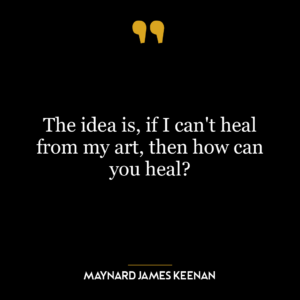This quote essentially suggests that all human beings have their own flaws, weaknesses, or “sicknesses.” However, the fact that we can recognize these flaws implies that there is a concept or standard of “health” or perfection that we are comparing ourselves to. It acknowledges the universal human condition of imperfection while also highlighting the inherent human aspiration towards betterment.
In the context of personal development, this quote can be understood as an encouragement to acknowledge our weaknesses and strive for improvement. It suggests that recognizing our flaws is not a sign of failure, but rather the first step towards self-improvement. The “universal sickness” could be seen as our blind spots, our biases, our unhelpful habits or behaviors. The “idea of health” represents the potential for growth and improvement that exists within all of us.
In today’s world, this quote could be applied to a wide range of societal issues, from mental health to social justice. For example, the widespread acknowledgment of mental health issues could be seen as a recognition of our “universal sickness.” However, the growing awareness and efforts to address these issues suggest that we have an idea of what mental “health” should look like and are striving towards it.
Similarly, the ongoing fight for social justice around the world could also be seen as a reflection of this quote. The recognition of systemic injustices and inequalities is an acknowledgment of our societal “sickness.” However, the fact that we are striving for change implies that we have an idea of what a just and equal society should look like – our societal “health.”
In both personal development and societal issues, this quote emphasizes the importance of acknowledging our flaws and striving for improvement, suggesting that this is a fundamental part of the human condition.







